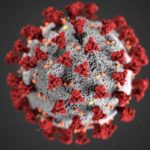
One of the many hoped-for solutions to treatment for COVID-19 is the drug hydroxychloroquine. The drug has been used for decades as a malaria preventive and as a treatment for auto-immune diseases such as lupus and rheumatoid arthritis.
The drug giant Novartis announced on April 20 that it will do a clinical trial with around 440 patients to get more information about whether hydroxychloroquine will work to cure COVID-19. The study will be a randomized, double-blind placebo-controlled study, the medical gold standard in which patients will be assigned one of three options: hydroxychloroquine, the combination of hydroxychloroquine and the antibiotic azithromycin, or a placebo.
This is in the wake of two small, non-randomized, non placebo-controlled studies of the drug.
The Associated Press is reporting on a study by the Veterans Administration among hospitalized US veterans and published by the VA online on April 16 for researchers and submitted to the New England Journal of Medicine. That study shows more deaths among those given hydroxychloroquine (27.8% death rate) than those given standard care (11.4% death rate).
The study also showed that using hydroxychloroquine, either with or without the antibiotic azithromycin, did not reduce the need for mechanical ventilation. The nationwide study was not a rigorous experiment, and included only 368 patients. But it is the largest look at using hydroxychloroquine so far. The study has not yet been peer-reviewed. It was funded by the National Institutes of Health and the University of Virginia.
On March 31, the Annals of Internal Medicine in an article by Jinoos Yazdany, MD, MPH; Alfred H.J. Kim, MD, PhD reported on the use of both hydroxychloroquine and chloroquine. They said “The antimalarials hydroxychloroquine (HCQ) and chloroquine (CQ) have demonstrated antiviral activity against severe acute respiratory syndrome–coronavirus 2 (SARS–CoV-2) in vitro and in small, poorly controlled or uncontrolled clinical studies.”
The article said data to support the use of HCG and CQ for COVID-19 are limited and inconclusive. One small, nonrandomized study from France did demonstrate benefit but had flaws in methodology. Another very small, randomized study from China in patients with mild to moderate COVID-19 found no difference in recovery rates. And the authors warned that antimalarial drugs can cause heart problems.
Both studies point to the need for ongoing randomized, controlled studies before widespread adoption of these drugs.
In a Tuesday White House COVID-19 briefing, Food and Drug Commissioner Dr. Stephen Hahn said there are at least 30 studies going on now, and he expects some results in early summer.